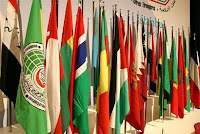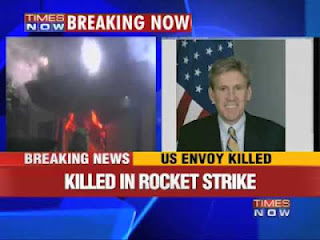Soon after
the departure of Holy Prophet, cracks started developing among Muslim Ummah and
now the position is that it is divided into dozens of sects, the most prominent
being Sunni and Shia.
They are divided on the basis of geographical location
and languages they speak. However, they could be split into two distinct
groups, one that is subservient to the sole surviving super power and the other
that is often termed anti United States.
The situation
has prevailed because the countries that are rich don’t wish to offend the mighty
and those who have nothing are depended on the US for food, aid, loans and even
arms to continue to fight among them. While there have been violent anti US demonstration
in many countries lately, many Muslim countries are not raising the voice else
the masters are offended.
Organization
like OIC, believed to be the voice of Muslim Ummah are proving ‘spineless’.
Muslim countries buying goods, including arsenal from the United States are not
willing to boycott products made in anti Muslim countries. They will not die if
the US goods are not consumed.
The most regrettable
has been the role of oil rich countries. They may be earning billions of
dollars from export oil at fabulous price but most of these are spent on buying
arms from the United States. Major buyers of arms are Saudi Arabia and UAE,
which face the least threat of attack from any country.
Arabs are
fully supporting the United Sates in crushing Iran. They had supported and
financed Iraq in waging 10-years war on Iran. They are assuring the world if
oil export from Iran is stopped, the world will not face any shortage of oil.






